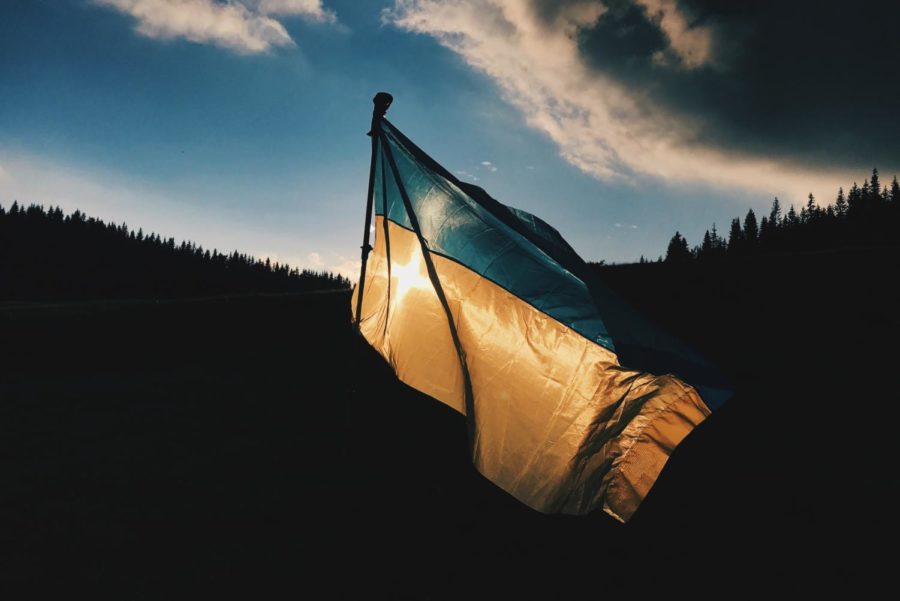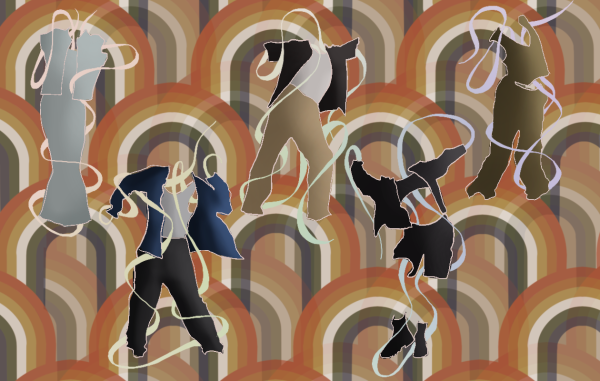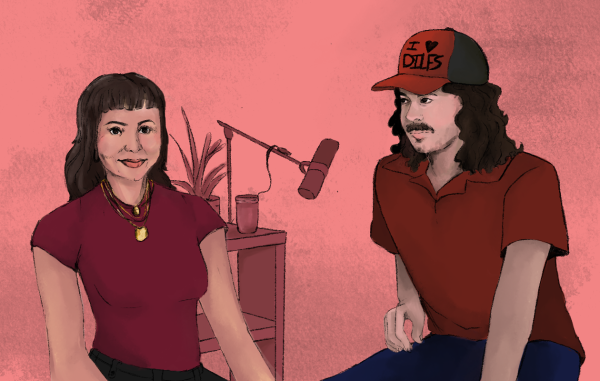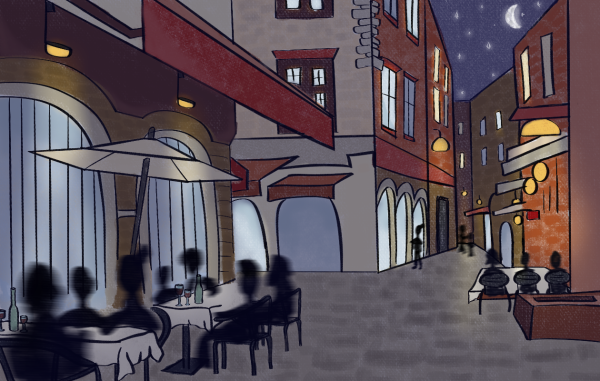what’s happening in ukraine? a quick history lesson for the passionate but confused
Russia has launched a full-scale invasion of Ukraine, resulting in thousands of citizens fleeing the country, destruction of property and the deaths of Ukrainian soldiers and civilians, as the world watches the news in horror and confusion. If you’re like many American young adults, it might have been a while since you picked up a world history textbook, so you might be lacking the context to fully understand the conflict between Russia and Ukraine. You may not understand why it’s happening or how it got to this point, and therefore don’t have the information ready to contextualize these current events. But when we think about this crisis, the least we can do is some background research.
A brief description of the historical events preceding the current invasion:
The Collapse of the Soviet Union 1991-1996
The Soviet Union (or U.S.S.R.), established in 1922, was a federation of 15 different national republics all united under the ideology of Russian Communism. A totalitarian single-party system governed the Soviet Union, meaning the government strived to direct and control aspects of the everyday lives of its citizens. Ukrainian and Russian activists worked to bring in new politics with freedom of speech and free elections. The Soviet Union was broken apart in 1991 due to deep corruption, a weakened economy and other internal and external factors.
Before its collapse, the Soviet Union was the largest country in the world, with an intimidating arsenal of nuclear weapons and considerable influence. With the Soviet Union’s collapse came 15 newly independent countries (Ukraine being one of them), all attempting to define their own identities and governance. In a series of diplomatic agreements, the U.S. and Russia negotiated hundreds of nuclear weapons back to Russia in exchange for assurance that Ukraine would be protected from potential Russian attack.
Ukraine’s Independence
After the separation of the Soviet Union, many of the countries were governed by representatives who were elites from the former corrupt Communist party, stopping these countries from evolving into democracy-based governments. The newly established Russia wanted to preserve the ideologies and power held before the collapse and encouraged the other former Soviet republics to become “satellite countries,” which would bring them back under Russian control.
The Orange Revolution and Russia’s Invasion 2004-2014
Ukraine was under the control of former corrupt leaders until the Orange Revolution (2004-2005), which protested the election of Vladimir Putin endorsed candidate Viktor Yanukovych as president of Ukraine. Over 100 people were killed in the protests taking place in Ukraine’s capital Kyiv, often called Maidan, which created the name Euromaidan for the large-scale protests at this time. With the pro-Russian president forced out of office as a result of mass protests, Putin who is supportive of Russia’s expansion was agitated viewing protests as a pro-Western revolution (“Western” roughly meaning Western Europe, including North America, Australia and New Zealand).
In 2014, Russia invaded and then annexed, or forcibly absorbed, the territory of the Ukrainian peninsula of Crimea. The war taking place in the eastern Ukrainian region moved west and roughly 13,000 soldiers and civilians died.
The Current Invasion 2021-2022
In fear of Ukraine moving further towards the U.S. and its allies, Putin seeks assurance that Ukraine will not join NATO (North Atlantic Treaty Organization) to keep Ukraine from the organizations’ military and political support. Tens of thousands of troops have been stationed at the Ukrainian border with Russia appearing to be making preparations for war in the form of moving military equipment, medical units and even blood to the front lines. Despite these events, many Russian citizens disagree with these actions against Ukraine.
As of writing this, the first strategic Ukrainian port city of Kherson and Kharkiv, the country’s second-largest city, have been seized by Russian forces. Russian artillery and rocket fire have cut off access to electricity, medicine, water and heat to many Ukrainian communities and have left an increasing number of homes, offices, businesses and vehicles destroyed. The civilian death count is rising as bombs are being dropped and people are sheltering in basements, tunnels and subways.
Watch, Read, Listen, Support
It can be hard to comprehend the gravity of a situation when your life is completely separate from those who are affected by a crisis, but to distance ourselves from these realities out of fear or confusion may also distance us from our humanity. The crisis in Ukraine is about human rights and the importance of independence and democracy, freedoms that we as Americans benefit from every day. As we confront this crisis, we must also confront the reality that violent conflicts continue to affect countries such as Syria, Afghanistan, Iraq and other Middle Eastern countries along with countries in Africa, South Asia and Latin America. Yet the conflicts in these countries have been approached by the U.S. and Europe much differently than what we can observe with Ukraine.
Western journalism has a tendency to normalize conflict in these parts of the world as if it is continuous and inevitable and therefore of less need for immediate action than conflicts in Western countries. There is also a disturbing contrast in the way Western countries have taken in thousands of Ukrainian refugees past their borders in a matter of days while previous waves of refugees from places like Iraq, Syria and Afghanistan were met with restrictions and constant debate in the U.S. about the safety and validity of accepting refugees and asylum seekers. Ultimately, the dangers and destruction of war have placed millions of people who are deserving of support, aid and advocacy in unstable conditions. A country’s preference or expectation of what a refugee or a person deserving of help should look or sound like does not change the need for safety, security and kindness that victims of war and conflict should receive. Violence and injustice experienced by any group of people should inspire outrage and care, especially from those in a position of security and privilege.
Continue to watch and read the news, do your own research, listen to the voices of those who are victims of conflict and diversify the sources in which you listen. Talk to your parents, friends, acquaintances and even your social media followers about what’s happening. Keep the conversation going and donate if you can. We cannot close our eyes to the things that hurt or scare us just because they are far away. Take it in, let it make you angry, even furious, and then act.
LINKS TO GIVE DONATIONS FOR AID:
International Rescue Committee
UNICEF
International Committee of the Red Cross
https://www.icrc.org/en/where-we-work/europe-central-asia/ukraine
Voices of Children
Support Student Media
Hi, I’m Grace Avery, the Editor In Chief of A Magazine. My staff and I are committed to bringing you the most important and entertaining news from the realms of fashion, beauty and culture. We are full-time students and hard-working journalists. While we get support from the student media fee and earned revenue such as advertising, both of those continue to decline. Your generous gift of any amount will help enhance our student experience as we grow into working professionals. Please go here to donate to A Magazine.











